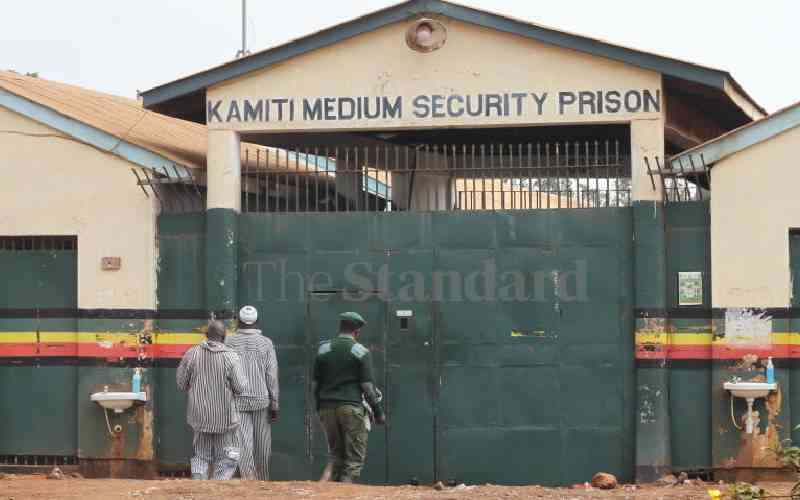×
The Standard e-Paper
Stay Informed, Even Offline

Hundreds of prisoners could soon walk to freedom following a move by the Judiciary to decongest prisons.
Chief Registrar of the Judiciary Anne Amadi, in a memo to all heads of court stations across the country, said the Judiciary was concerned with the high number of inmates in prisons, currently almost twice their capacity.